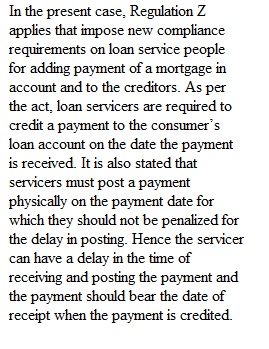


Q Question 1: ABC Credit Finance is a credit card provider with regional payment processing centers. You are a manager of one of these centers. You are an at-will employee in a typical at-will jurisdiction. ABC is in competition with other card companies in a recent interest rate and balance transfer marketing promotion. Concerned about effect of the competition on its revenues, ABC has instituted the following: 1. Increased late payment penalties 2. Reduced length of billing cycle 3. Immediate reporting of late payment to credit reporting agencies 4. Unilateral review of existing customer interest rates against credit scores with corresponding increase of rates quarterly to those whose scores fall into "poor" category 5. Payments that arrive on or up to 24-hours before the payment due date are not to be processed until the next business day following the due date before processing the payment, and late charge applied, on the theory customers will have difficulty proving timely payment. ABC has notified its customers about changes 1 through 4. However number 5 is an confidential inhouse "unofficial" policy change that has been communicated to all regional offices. RESEARCH AND ADDRESS THE FOLLOWING AND ANY OTHER LEGAL/ETHICAL ISSUES YOU IDENTIFY IN THIS SCENARIO: • The legal/regulatory provisions of the law that apply to ABC's payment processing practices. • The ethical theory most prominently displayed in ABC's actions in making these policy changes. • Will you as manager of the processing center implement policy no. 5? Why or why not? What are your ethical obligations? • If you choose not to implement no. 5, what options do you have, if any, for protection of your job as an at-will employee? • If you are fired for refusal to implement no. 5, what might be a basis for a wrongful discharge action against ABC?
View Related Questions